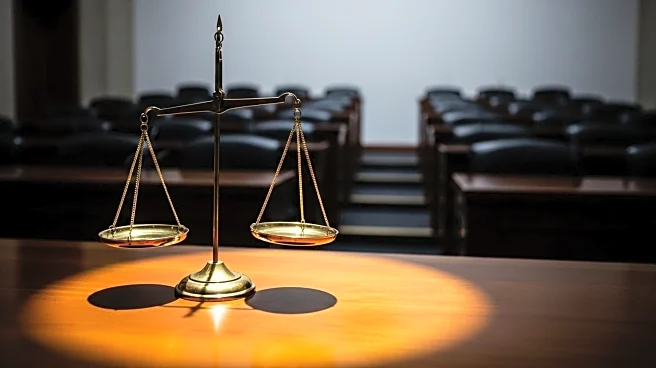What is the story about?
What's Happening?
As the government shutdown continues into its ninth day, tensions have escalated on Capitol Hill. Lawmakers are experiencing heightened confrontations as they grapple with the implications of the shutdown. The shutdown has resulted from a failure to reach consensus on budgetary allocations, leading to a halt in non-essential government operations. This situation has sparked intense debates among legislators, with some advocating for immediate resolution while others hold firm on their fiscal positions. The confrontations reflect the deep divisions within Congress, as both parties struggle to find common ground.
Why It's Important?
The ongoing government shutdown has significant implications for various sectors in the U.S. economy and public services. Federal employees face furloughs, and essential services are operating with limited resources, affecting millions of Americans. The shutdown also impacts government contractors and businesses reliant on federal operations, potentially leading to economic disruptions. Politically, the shutdown underscores the challenges of bipartisan cooperation, affecting public perception of legislative effectiveness. The prolonged impasse may influence upcoming elections, as voters assess the ability of their representatives to govern effectively.
What's Next?
If the shutdown persists, pressure will mount on lawmakers to negotiate a resolution. Key stakeholders, including business leaders and civil society groups, may increase lobbying efforts to encourage compromise. The potential for public protests and increased media scrutiny could further influence the legislative process. Lawmakers may need to consider temporary measures to alleviate immediate impacts while working towards a long-term budget agreement. The situation remains fluid, with potential shifts in political alliances as negotiations continue.
Beyond the Headlines
The government shutdown highlights deeper issues within the U.S. political system, including the polarization of political parties and the challenges of governance in a divided Congress. It raises questions about the effectiveness of current legislative processes and the need for reforms to prevent future shutdowns. The ethical implications of using shutdowns as a political tool are also under scrutiny, as they affect vulnerable populations and essential services.
















